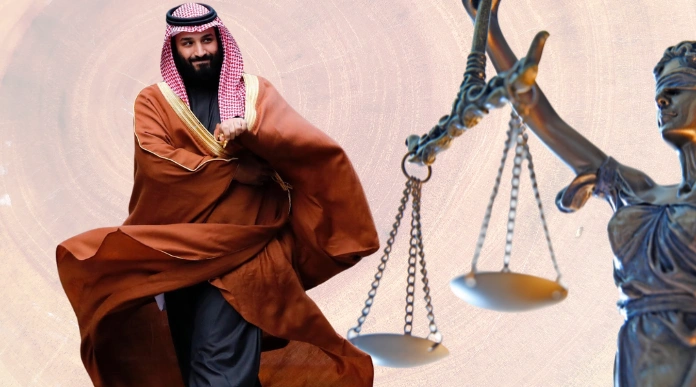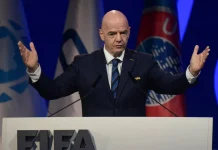Organizing a football event of such magnitude as the FIFA World Cup is not only about stadiums and infrastructure that meet international standards, high technologies, and infrastructures for millions of fans and visitors. It is also about the values and principles that the host country represents. The World Cup is an event that symbolizes unity, fair play, and human dignity, all of which oppose Saudi Arabia’s treatment of political activists. Such systemic abuse poses the most basic questions regarding the ability of the Kingdom to host the FIFA World Cup in 2034.
What is Arbitrary Detention in Saudi Arabia?
Arbitrary detention is the imprisonment of a person without due process and a fair trial. Saudi Arabia practices this to keep the opposing voices silent, curb political activists, and punish opinion-makers who make contrary statements in line with the government’s viewpoint. Many human rights organizations like Amnesty International and Human Rights Watch have documented various cases of arrests of activists, journalists, and ordinary citizens by arbitrary detention procedures.
What makes the Saudi application of arbitrary detention especially alarming is the fact that it targets activists whose main concern consists of basic rights- freedom of expression, equality, and the freedom of one’s religion.
As of 2018, according to Human Rights Watch, it was reported that 2,305 individuals have been held without being referred to a court for more than six months. In 2018, thousands of detainees were being detained for unacceptably long times, whereas, in 2014, 293 detainees had been held in such long-term detention. All these conflicts with the real meaning and values of the FIFA World Cup strive for the real essence of a single, inseparable world with no borders.
Criminogenic Effect on Spectators and Participants
Arbitrary detention in Saudi Arabia may also have a chilling effect on fans, athletes, and media personnel travelling to the country. The Kingdom’s restrictive laws hardly leave room for open dialogue or criticism. Foreign visitors who innocently express views critical of the regime or engage in behavior deemed inappropriate under Saudi law, could face very severe consequences.
Detentions have become arbitrary since the mass arrests in November 2017, when 381 people were detained on allegations of corruption without clear legal processes. Detentions were usually coupled with coercive measures to obtain financial settlements from detainees.
To explain, the examples of tourists or journalists who happen to breach a local norm and report on sensitive issues that, according to Saudi law, may lead them to detention and deportation establish an atmosphere of fear and uncertainty, which in no way goes in line with the celebratory, inclusive spirit of the World Cup.
Exploitation of Sportswashing
Sportswashing does not address the systemic oppression and arbitrary detention issues. It allows the Saudi regime to continue its practices under the guise of modernization and reform. The World Cup will give the Saudi government a strong platform to change its narrative, while dissenters are silenced in the background.
Contradictions with FIFA’s Human Rights Policy
FIFA itself, in its statutes, gives respect for human rights a place of prominence. It has further committed itself to annual reporting on how the organization has abbreviated UNGP on Business and Human Rights. In theory, it means that FIFA should check the human rights status of a given country before awarding it the right to host the World Cup.
Some of the key principles that fill the gaps include respect for peoples’ rights, protection of rights, and the rule of law, to mention but a few. FIFA faces criticism for permitting the Kingdom to host the World Cup as this action put the organization in a compound with its policies or decision-making. The opponents stressed that FIFA cannot act as a human rights organization, supporting the regimes that detain the citizens from exercising their rights.
The Global Backlash
The global society has time and again criticized human rights violations in Saudi Arabia. Torture and ill-treatment, including of activists, journalists, and political opponents, and detention without charge have sparked outrage in other governments, NGOs, and international organizations.
The worst affected are activists, journalists, and any form of dissident who hold a dissenting view of the government. As it was received from different sources, at least 33 journalists are imprisoned for their opinions regarding the government even though free speech is banned.
This would deflect focus from the event, and the sport and place emphasis on Saudi Arabia’s polices that are in question. This would be unfortunate as it would lower people’s perception of the World Cup or lower the number of people who participate in or watch the event hence reducing the success of the event.
Possible Consequences for Saudi Citizens
The Saudi public would also feel that the World Cup would put citizens under greater pressure and repression. In preparation for this event, the government is likely to further crackdown on dissenters so that it will not appear weak or out of control. Detention, torture, or silence at gunpoint could be some of the greater risks that await activists and journalists as the regime attempts to give the world an image that portrays a good show.
Moreover, foreign visitors and the media that follow them may bring to the surface harsh realities about Saudi Arabia’s legal and social systems. This may further have the effect of suppressing local voices. The World Cup can then exacerbate the disparity between the Saudi government and its citizens instead of unifying and pushing forward.
Conclusion
Arbitrary detention of dissenters is a glaring indicator of the country not being fit to host the FIFA World Cup 2034. The Kingdom is known for abusing the rights of humans through entrenchment against activists and critics, contrary to the systems representing inclusiveness, freedom, and equality that the world’s greatest sporting spectacle, the World Cup, entrenches.
It will not only ruin the reputation of FIFA but also present an opportunity for whitewashing the oppressive Saudi regime. Thus, it becomes very crucial for FIFA to abide by its promise of human rights and ensure that the World Cup should symbolize unity and dignity rather than legitimize any authoritarian regime.













